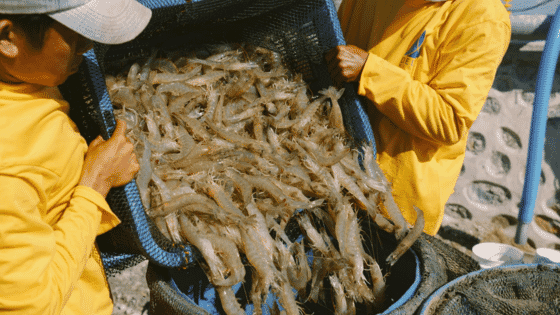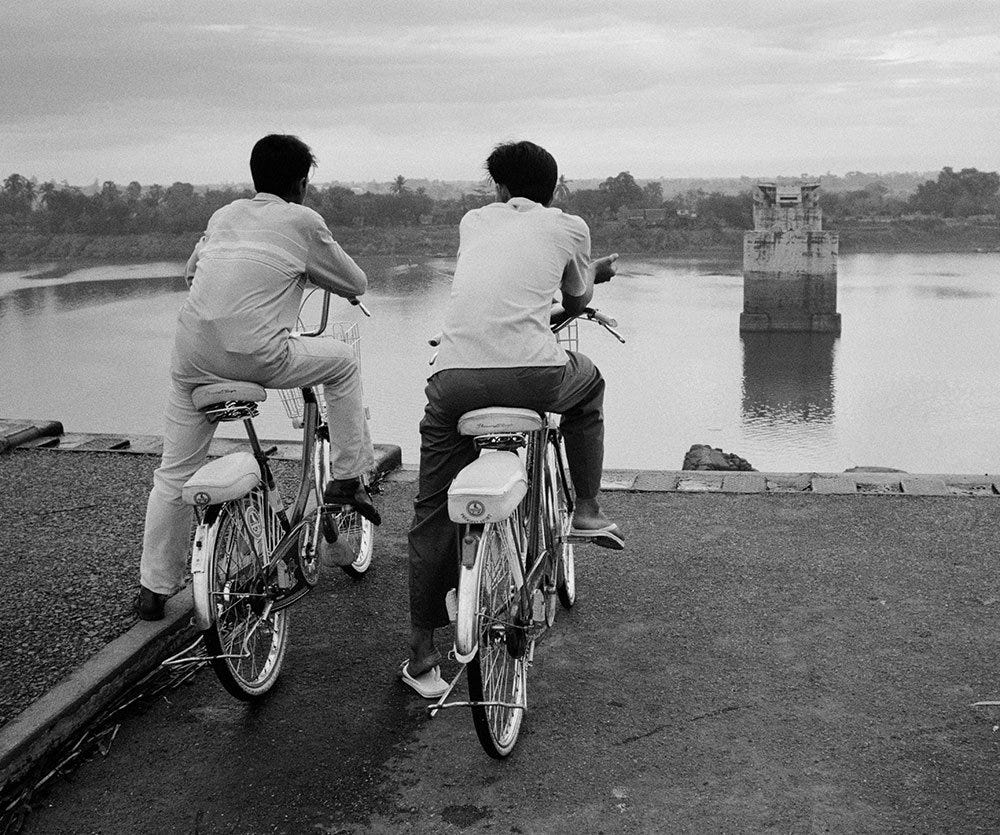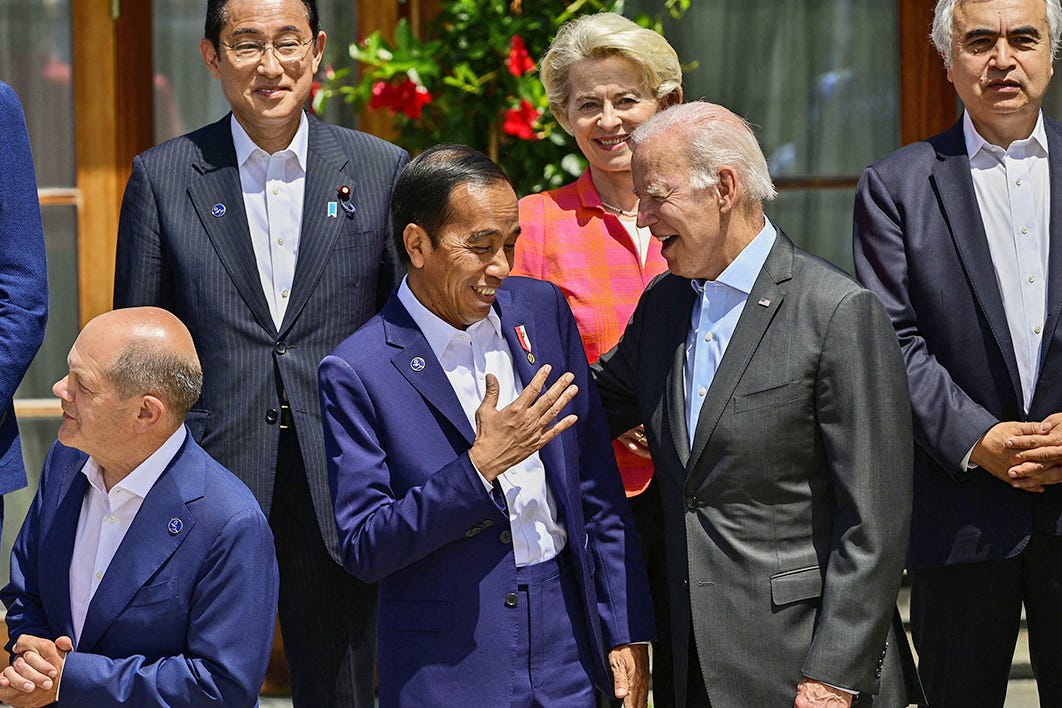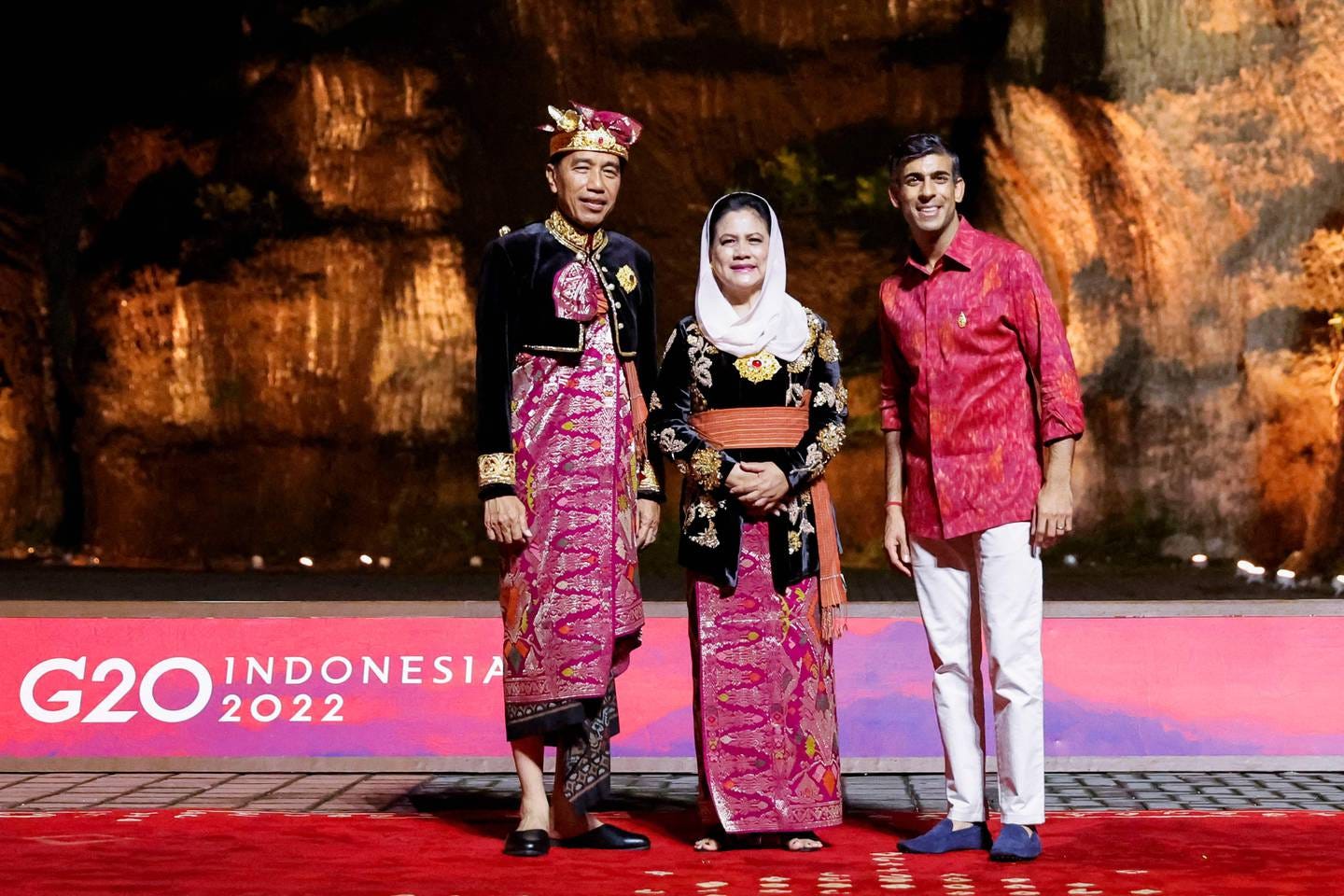Another Mixed Bag
The Global North is in recession and the Global South is growing in power and wealth, but its not all about politics.
UPDATE: Your intrepid editor ventured out for two conference appearances and mentions in the Khmer Times and China Daily, but under doctors orders it’s back to confinement for another few days and hopefully an end to pneumonia, yes, pneumonia.
Today, the Long Mekong Daily has cast a wide net and brings you something fishy, AI cyber punk, global energy problems, the origins of Cambodian language, the COP27 ordeal, and the UK’s misguided Southeast Asia approach.
The fatal flaws in Asian shrimp aquaculture
The overuse of disinfectants, coupled with farmers’ willingness to exceed their systems’ carrying capacities, have been key factors in the downfall of the Asian shrimp sector over the last decade. However, as Robins McIntosh – executive vice-president of Charoen Pokphand Foods (CP) and CEO of Homegrown Shrimp – explains, one or two shrimp farmers are now proving that reverting to older techniques can improve profitability.
“Right now the Asian industry is struggling with costs, struggling against the surging South American onslaught of shrimp and so questions need to be asked about how we can become more competitive again. McIntosh argues that a change in farming practices – notably the rise of chemical disinfectants such as chlorine and ozone – rather than sticking to the biosecurity technique that had served them well for several decades may lie behind the problem.
Read the full article here.
AI Produced Cyber Punk is on the Rise
A divisive topic in recent months, AI-generated art is worrying to some artists, who wonder whether they’ll be replaced by algorithms. Meanwhile, others deem AI creations as little more than high-tech plagiarism. In 2022, an array of AI tools have become available to the general public. The most accessible ones only require inputting a few words to create original images, which has resulted in a tidal wave of surreal memes — who doesn’t want to see the Demogorgon from Stranger Things playing basketball?
However, when a work of art made with AI controversially won an art prize in Colorado in September, many realised that the technology has more to offer than just memes. A digital artist experimenting with AI is Zzai (born Chen Zhe). Born in the Chinese province of Guangxi, Zzai teaches visual communication, boasts a phD in media studies, and has been exhibited around China.
Read the full article here.
A Call for Clean Green Energy
The global energy crisis is fuelling fierce debate around the world over which new energy projects should or shouldn’t go ahead. Conversations about energy and investment often fail to take into account the considerable lag between investment decisions and when projects actually go live. At the International Energy Agency (IEA), we warned years ago that global investment in clean energy and energy efficiency was not sufficient to put us on a path to reach our climate goals. Without a surge in clean energy spending, the amounts invested in conventional energy projects also risked falling short of what would be needed to meet potential increases in demand.
Even though the current energy crisis was triggered by Russia’s invasion of Ukraine, we must still pay close attention to these underlying investment imbalances as we emerge from the crisis, or we risk more volatility ahead. Are today’s sky-high fossil fuel prices a signal to invest in additional supply or further reason to invest in alternatives?
Read the full article here.
Where Does Khmer Language Come From?
I entered Cambodian literature through the door of sound. My first intensive encounters with its literary forms were as a student of Buddhist chant and poetry recitation in the rural Cambodian province of Kampong Speu, for thirteen months from 2005 to 2006. My teachers, lok kru Prum Ut and neak kru Koet Ran, had exacting standards for diction, melody and moral conduct, and knew that their role as masters of an exceptionally musical form of chant called smot meant instilling such standards in their students. I was only eighteen at the time, fresh out of high school in San Francisco, and was at first a failure in their eyes. I mispronounced the words, put trills and glissandi in the wrong places and once ran away to a nearby mountain temple when I couldn’t stand the pressure of complete immersion in Khmer village life. Despite my transgressions, they took me under their care. Under their tutelage, I repeated short phrases until I got it right or until my throat, irritated by the silty tea we drank out of dimpled beer mugs, simply gave out.
In studying with Prum Ut and Koet Ran, I had unwittingly been steeped in the way Cambodian literature had been transmitted for the past fifteen hundred years. Koet Ran, who became blind after the Khmer Rouge period, stressed the oral method alone: she would sing, I would repeat, then she would critique me and sing again. She had memorised well over a hundred chants and had high hopes I would have such a fine memory. But here again I failed, fumbling for the words whenever I set down my notebook. Prum Ut offered a dual method, both oral and written. At night, he would sit me down on the creaky floors of his one-room home, light a slender candle and take a thick krang off the altar. This paper manuscript, folded in the leporello or accordion style, guided my studies of smot and sparked a lifelong passion for traditional Southeast Asian books and manuscripts. Prum Ut chanted Khmer and Pali texts from the krang in ornate, flowing melodies as I did my best to keep up. By day, I returned to the manuscript, transcribing and translating the texts we had studied the night before. My failures notwithstanding, these are the core methods that Cambodians have used in teaching literature and the performance of literature to new generations since at least the seventh century of the Common Era. For many Cambodian authors throughout history, their rigorous approach to language built the foundation for the expressive art of literature.
Read the full article here.
COP27 - Agreement by Ordeal
After ten days of talks between officials end in deadlock, pairs of ministers (one from a developed country, the other from a developing one) are charged with seeking out compromises on the major issues. After two more days, still largely deadlocked, the ministers hand over to the host country’s COP president — this year, Egypt’s foreign minister Sameh Shoukry — to try to produce a compromise text. The president initially develops what are essentially shopping lists of options that define the differences between different countries’ positions but do little to resolve them.
By now it is Friday morning, and the conference is due to end at 6pm. The negotiations fall silent as the president takes further “soundings.” The exhibition halls and food stations are dismantled; anyone who isn’t a country delegate, UN staffer, journalist or NGO analyst leaves for home, their COP done. Six o’clock comes and goes. A new text is shown to the heads of delegation at 3am on Saturday morning, but there are no printed versions and phones are confiscated so they can’t take photos. The president again retreats to his cell, inviting individual ministers in for more hours of bilateral contemplation.
Read the full article here.
Europe's Indo-Pacific tilt is welcome, but it must be realistic
Experts assembling at the UK House of Commons this week will be asked to give their views on the country's relationships with the South-East Asian nations. Three sets of panels featuring strategic, development and economic experts have been arranged. The MPs on the foreign affairs committee will be able to draw witness perspectives on what is being billed as an opportunity to understand the region’s own priorities and how the UK can fit with its partners on the other side of the world.
Indonesia is at the heart of the special Parliamentary session, as the country raised its profile and global standing in 2022, having served as president of the Group of 20. In a turbulent year, the G20's role gave Asia a chance to define its own international interests, faced with Russia’s war in Ukraine and the global inflation and energy crisis. European countries have had their own awakening in 2022 and their ambitions in the Indo-Pacific must now be weighed against a changed security landscape much closer to home.
Read the full article here.









